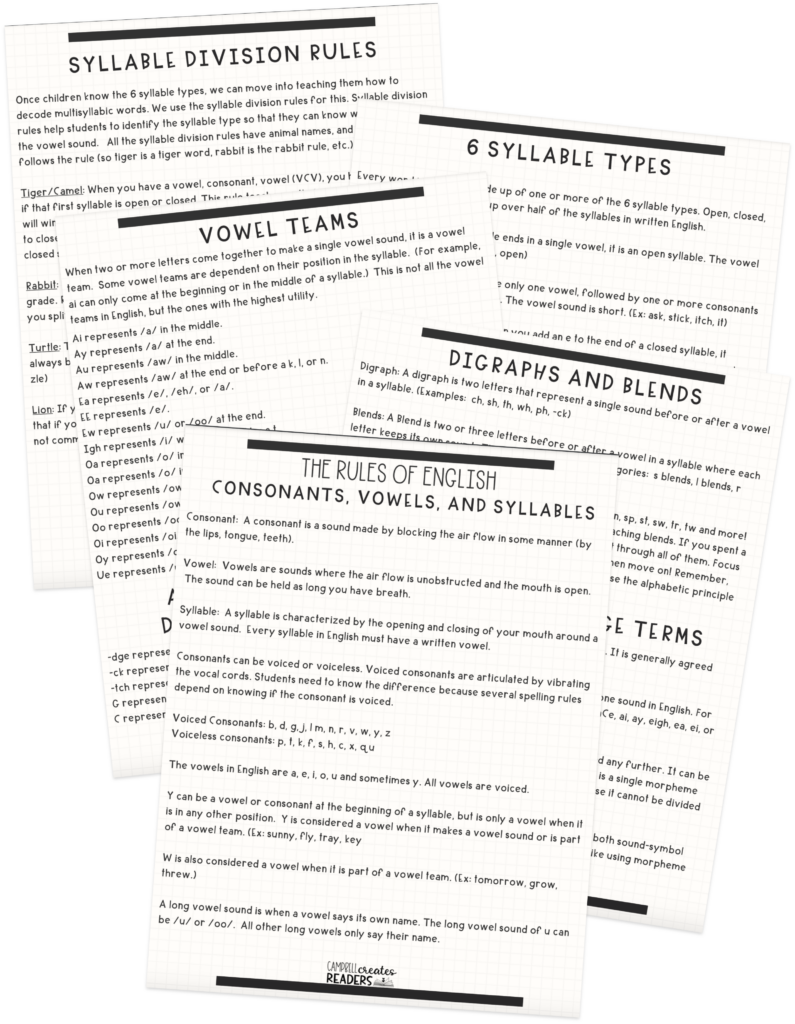
Share This:
I’ve started and stopped this first post several times. The idea of putting myself out there as some kind of expert in the Science of Reading is not only daunting, it’s just wrong. I’d like to start by saying I’m not an expert—I’m not a researcher, a published author, or a professor. I do not stand on the shoulders of giants. I sit at their feet. Just like you, I’m a teacher who wants what is best for my students. I’ve created this website in hopes I can help you along on your journey, as so many have helped me on mine. This website will be full of the research that has transformed my teaching, as well as tips and tricks for teaching aligned with the Science of Reading. Today is just our starting line.
I started my trek into the Science of Reading a little over a year ago. I will never forget exactly where I was sitting when it began. I was in a county-wide Reading Specialist meeting and our district Reading Specialist was sharing information about the difference between Structured Literacy and Balanced Literacy. The more she shared, the more frustrated I got. She was talking about using decodable texts instead of leveled texts, allowing less self-selected reading and more teacher-directed reading. And worst of all? She said the cueing systems were not helping our students. I remembered saying that I was listening, and I needed time to process. Inside, I was thinking about how my cueing strategy cards were laminated AND in color and you would be taking them out of my cold, dead hands. They were in COLOR friends.
But then I remembered the voice of Dr. Denise Johnson, my mentor from college. She always said the moment you think you have nothing left to learn, you need to retire. I had an obligation to listen and learn. The previous year, I had been Orton-Gillingham trained. I was attempting to balance the multisensory instruction knowledge I had been given in that training with a very-popular intervention program that was bound by leveled texts (Let’s just say it rhymes with “When Pigs Fly”.) The two weren’t jiving. Instead, I was trying to do all of both and kept being surprised when it wasn’t working.
I made the decision to start with a one-on-one student I had. This student was in an upper grade and had been through intervention for several years. Nothing was working, so I thought, “What do I have left to lose?” No, she did not end the year reading several grade levels ahead. What she was able to do, however, was decode multisyllabic words that had been out of her reach for years. I saw the pride on her face when she was able to read a teacher’s name outside of their classroom door. I was sold.
If you are brand new in your Science of Reading journey, I’m not asking you to overhaul your entire classroom overnight. Instead, start by listening with an open mind. If you are farther along on your journey, I hope this website will give you new ideas for your instructional practice.
No matter where you are in your journey, we’re all still growing, still learning, and I hope you’ll walk this road with me.
Share This:

Savannah Campbell is a K-5 reading specialist. She has taught her entire 12-year teaching career at the school she went to as a child. She holds two master’s degrees in education from the College of William and Mary. Savannah is both Orton-Gillingham and LETRS trained. Her greatest hope in life is to allow all children to live the life they want by helping them to become literate individuals.

Savannah Campbell is a K-5 reading specialist. She has taught her entire 12-year teaching career at the school she went to as a child. She holds two master’s degrees in education from the College of William and Mary. Savannah is both Orton-Gillingham and LETRS trained. Her greatest hope in life is to allow all children to live the life they want by helping them to become literate individuals.
Feeling overwhelmed with all the terminology out there? Want to know the key terms all teachers need to teach phonics? In this FREE Rules of English cheat sheet, you get a 5 page pdf that takes you through the most important terms for understanding English—you’ll learn about digraphs, blends, syllable types, syllable divisions, and move. Grab today and take the stress out of your phonics prep!
